 Stephen Geller Katz LCSW-R
Stephen Geller Katz LCSW-R
Misophonia Cognitive Retraining Therapy
 Stephen Geller Katz LCSW-R
Stephen Geller Katz LCSW-RMisophonia Cognitive Retraining Therapy
Misophonia Cognitive Retraining Therapy, as featured on the MTV True Life episode: “I Have Misophonia” premiering Friday, December 16th, 7:00 PM EST. See Clip >
|
|
|
| Moderate to severe anxiety triggered by chewing sounds, including: | ||
|
|
|
You may also be affected by visual stimuli, such as repetitive foot or body movements, fidgeting or movement you observe out of the corners of their eyes. Intense anxiety, rage and avoidant behavior may develop as a result of misophonia.
 * Do you feel your family and friends don’t understand how much you suffer?
* Do you feel your family and friends don’t understand how much you suffer?
* Do you often feel you can just suffer through a social event where there is eating present only to find that you must “escape” before you have a panic attack?
* Do you find that some people are at first understanding and make some efforts not to make the triggering sounds in front of you, but soon forget and constantly have to be reminded, causing you to feel angry, anxious and depressed?
* Are you avoiding social activities that you enjoy because of the misophonia?
* Are you fearful of losing your job and/or is the misophonia effecting your job performance?
You may be a candidate for Misophonia Cognitive Retraining Therapy, or MCRT.
Stephen Geller Katz, LCSW-R, with over 20 years of clinical experience, a New York University graduate, developed Misophonia Cognitive Retraining Therapy and founded Misophonia Cognitive Center™ in response to the growing number of people with Misophonia coming to his private practice from audiologists and ENTs. He discovered that by helping people to retrain and reinterpret the thoughts around their Misophonia, anxiety and depression symptoms began to improve. But even more important so did the Misophonic trigger response.
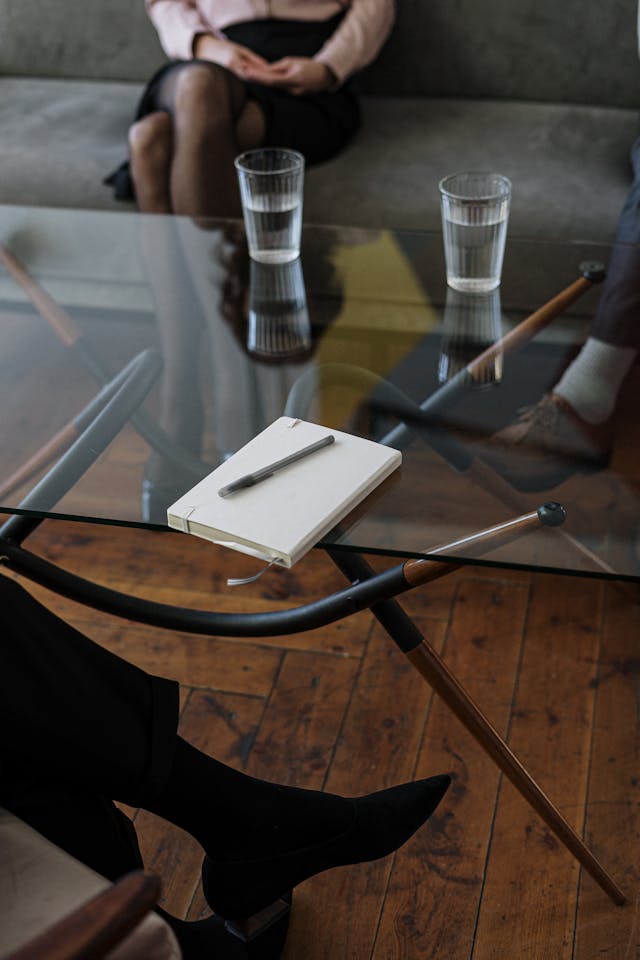 What are the effective alternative treatments for misophonia that may help manage symptoms and improve quality of life? Misophonia, a condition characterized by strong emotional reactions to specific sounds, can be debilitating for those affected. Traditional treatments, such as cognitive-behavioral therapy (CBT) and sound therapy, have shown effectiveness, but many individuals seek alternative treatments to complement or replace these methods.
What are the effective alternative treatments for misophonia that may help manage symptoms and improve quality of life? Misophonia, a condition characterized by strong emotional reactions to specific sounds, can be debilitating for those affected. Traditional treatments, such as cognitive-behavioral therapy (CBT) and sound therapy, have shown effectiveness, but many individuals seek alternative treatments to complement or replace these methods.
Misophonia is a neurological disorder where certain sounds trigger intense emotional responses, such as anger, anxiety, or panic. Common trigger sounds include chewing, tapping, breathing, and repetitive noises. These reactions can disrupt daily activities, relationships, and overall well-being. While there is no known cure for misophonia, various treatments can help manage symptoms.
Mindfulness and meditation practices can be highly effective in managing misophonia symptoms. These techniques help individuals focus on the present moment and develop a greater awareness of their thoughts and emotions. Mindfulness can reduce the intensity of emotional reactions to trigger sounds by promoting a calm and focused mind.
Meditation practices, such as guided meditation and deep breathing exercises, can help individuals relax and reduce stress. Regular meditation can improve emotional regulation and resilience, making it easier to cope with misophonia triggers.
Hypnotherapy is an alternative treatment that uses guided relaxation and focused attention to achieve a heightened state of awareness, often referred to as a trance. During hypnotherapy sessions, a therapist may suggest ways to change the individual’s response to misophonia triggers.
This therapy aims to reprogram the subconscious mind to associate trigger sounds with neutral or positive feelings instead of negative emotions. While more research is needed to establish the effectiveness of hypnotherapy for misophonia, some individuals report significant improvements in their symptoms.
Acupuncture, a traditional Chinese medicine practice, involves inserting thin needles into specific points on the body to promote healing and balance. Some practitioners believe that acupuncture can help manage misophonia by reducing stress and anxiety, which are often exacerbated by trigger sounds.
While scientific evidence on the effectiveness of acupuncture for misophonia is limited, it has been shown to reduce symptoms of anxiety and stress, which may indirectly benefit individuals with misophonia.
Nutritional therapy involves making dietary changes to improve overall health and well-being. Some researchers suggest that certain nutrients and dietary patterns may influence neurological and psychological health, potentially impacting misophonia symptoms.
A balanced diet rich in omega-3 fatty acids, antioxidants, and vitamins can support brain health and emotional regulation. Additionally, reducing the intake of caffeine and sugar may help manage stress and anxiety levels, which can exacerbate misophonia symptoms.
Neurofeedback is a type of biofeedback that uses real-time monitoring of brain activity to teach self-regulation of brain function. During neurofeedback sessions, individuals learn to control their brain waves to achieve a more balanced and relaxed state.
This treatment aims to enhance the brain’s ability to regulate itself, potentially reducing the severity of emotional reactions to misophonia triggers. While more research is needed, some studies suggest that neurofeedback can be effective in managing anxiety and stress-related conditions, which may benefit those with misophonia.
Aromatherapy uses essential oils to promote relaxation and well-being. Certain scents, such as lavender, chamomile, and sandalwood, are known for their calming effects. Aromatherapy can be used to create a soothing environment that may help reduce the stress and anxiety associated with misophonia triggers.

Individuals can use essential oils in diffusers, as well as in bath products or massage oils, to create a relaxing atmosphere and support emotional balance.
Sound therapy involves the use of specific sounds and music to promote relaxation and reduce stress. Techniques such as white noise, nature sounds, and binaural beats can mask trigger sounds and create a calming auditory environment.
Sound therapy aims to retrain the brain to respond differently to sounds and reduce the emotional impact of misophonia triggers. Using sound machines, apps, or music playlists can be an effective way to manage misophonia symptoms on a daily basis.
While traditional treatments for misophonia, such as CBT and sound therapy, remain the primary approaches, alternative treatments can offer additional support and relief. Mindfulness, hypnotherapy, acupuncture, nutritional therapy, neurofeedback, aromatherapy, and sound therapy are all viable options to explore. It is essential to consult with a healthcare professional before starting any new treatment to ensure it is appropriate for your individual needs.
For specialized online treatment services, consult with Stephen Geller Katz at the Misophonia Cognitive Center™. Dr. Katz offers a compassionate and comprehensive approach to managing misophonia.
MISOPHONIA COGNITIVE CENTER™
Stephen Geller Katz, LCSW
646-598-2251
• Convenient online sessions
• Dr. Katz is multi-lingual
For more information about Dr. Katz and his treatment services, visit https://www.misophoniacognitivecenter.com/.
In this article, we’ll explore holistic misophonia treatment, focusing on diet, exercise, and relaxation techniques. Misophonia, a condition characterized by strong emotional responses to specific sounds, can be challenging to manage.
While therapeutic approaches like cognitive-behavioral therapy (CBT) and exposure therapy are effective, holistic strategies that address various aspects of well-being can complement traditional treatments.

A holistic approach to misophonia treatment considers the interconnectedness of physical, emotional, and mental well-being. By addressing these aspects, individuals with misophonia can enhance their overall quality of life and better manage their condition.
Just as certain sounds can trigger misophonia responses, specific foods can exacerbate symptoms. Keep a food diary to identify if certain dietary choices affect your condition.
Incorporate anti-inflammatory foods into your diet, such as fruits, vegetables, whole grains, and fatty fish like salmon. These foods may help reduce overall inflammation, potentially benefiting misophonia symptoms.
Dehydration can contribute to increased stress and irritability. Ensure you’re adequately hydrated throughout the day.
Reduce or eliminate stimulants like caffeine and alcohol, as they can heighten stress and anxiety, potentially worsening misophonia symptoms.
Regular physical activity, such as aerobic exercise, yoga, or tai chi, can help reduce stress and promote relaxation.
Exercise stimulates the release of endorphins, natural mood boosters that can improve your emotional state.
Physical activity can improve sleep quality, which is often disrupted by misophonia-related stress.
Practice deep breathing exercises to calm your nervous system and reduce stress when triggered by misophonia sounds.
Mindfulness meditation can help you stay present in the moment, reducing emotional reactions to trigger sounds.
Learn and practice progressive muscle relaxation techniques to release physical tension.
Biofeedback therapy can teach you how to control physiological responses to stressors, potentially reducing misophonia symptoms.
While holistic approaches can complement traditional misophonia treatments, it’s essential to consult with a misophonia specialist or therapist. They can provide guidance on incorporating these strategies into your treatment plan and tailor them to your specific needs.
Stephen Geller Katz, a licensed clinical social worker and founder of the Misophonia Cognitive Center™, specializes in holistic misophonia treatment. Dr. Katz offers online sessions and speaks five languages, ensuring accessibility to effective treatment.
To explore holistic approaches to misophonia treatment and receive expert guidance on improving your overall well-being, contact Stephen Geller Katz at the Misophonia Cognitive Center™. Dr. Katz can help you develop a comprehensive plan that addresses the physical, emotional, and mental aspects of your condition.
Call today to schedule an expert consultation with Dr. Katz:
MISOPHONIA COGNITIVE CENTER™
Stephen Geller Katz LCSW-R
646-585-2251
*All sessions are conducted online
What are some of the latest developments in the treatment of misophonia? Do you feel stressed or tense when suddenly someone starts chewing or breathing loudly? Do you feel a lack of control over your reactions upon hearing such sounds? Does hearing someone sniff or snore upset you or make you angry? You may be suffering from a condition known as “Misophonia.” In this condition, you suffer from anxiety and other mental health symptoms even when hearing certain everyday normal sounds. This can cause you to cringe, squirm, or react negatively and cause social awkwardness. Thus, it is important to seek effective treatments for this condition.
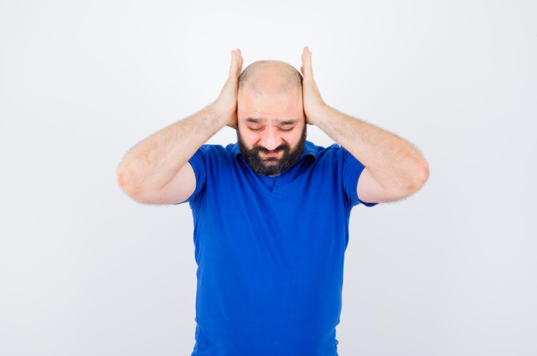
(Source)
Misophonia sound triggers don’t have a diagnosis. While chalk on a board or nails on a wall might make many people cringe, this doesn’t imply that everyone has Misophonia. The clear distinction between generic cringe and Misophonia is that in the latter condition, patients overreact or act instantly in an aggressive, aggressive-passive, or negative way. Moreover, Misophonia is a general irritation of certain sounds, while Hyperacusis refers to the sensitivity one has to a certain sound’s characteristics.
There is still an extensive need for research about Misophonia. Experts and doctors are trying their best to treat and find solutions for this condition. Latest developments and research have led to significant advances in the treatment processes. Now, there is a broad range of treatment options that may help in reducing negative responses due to Misophonia triggers.
However, our focus in this article will be on the latest therapy treatments that are helping Misophonic people maintain a consistent response to Misophonia triggers. If you are living with this condition, learn the treatment options to work out the best solution specific to your lifestyle with your doctor’s help.
Exposure therapy utilizes a psychological approach that helps patients overcome their fears resulting in aggression, anxiety, anger, depression, stress, or any other negative reaction. It enhances the thought process of an individual and helps them counter the responses that otherwise occur without any proper treatment, such as in Misophonia.
For example, the treatment may involve exposing the patient to the Misophonia triggers that cause them to react and act aggressively. The therapy may start with a low-intensity exposure depending on the severity of the condition. However, the intensity of exposure increases gradually to help the patient overcome their fears and build tolerance.
Tinnitus Retraining Therapy involves treatment procedures to help tinnitus patients cope with ringing (or any other sounds or sensations) in their ear(s). Ringing or buzzing in the year can be constant and discomforting. Therefore, retraining therapy in this sense helps build tolerance and form a level of patience against the triggers. For example, in tinnitus, the treatment may involve building tolerance against ringing in the ear. Conversely, in the case of Misophonia, the retraining therapy may help reduce the impact of certain sound triggers and negative responses against them.
Biofeedback encourages patients to notice and jot down how and why they are noticing some symptoms. With the use of auditory and visual feedback, patients learn how to notice the symptoms of stress, anxiety, depression, etc. They may learn to notice muscle tension, heart rate, body temperature, and other signs.
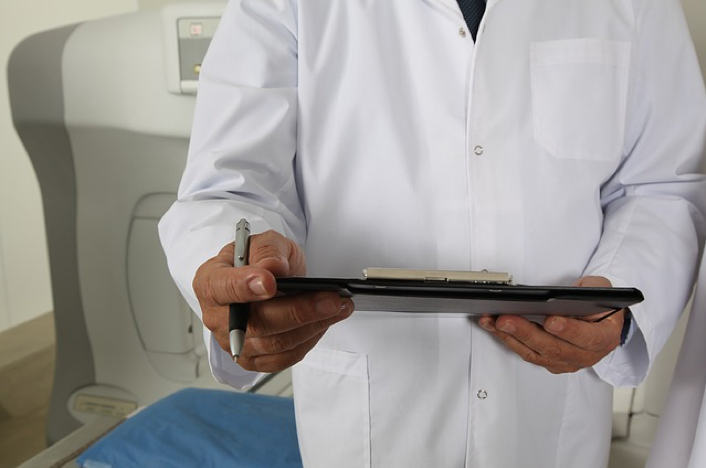
(Source)
By controlling the psychological and physical effects of stress or any other symptoms that occur due to Misophonia, patients can learn to cope. They can easily relax their mind and feel at ease through several techniques. These may include relaxing muscles, slowing heart rate, reducing signs of body temperature spikes, etc.
Through CBT, patients with Misophonia learn about their responses and sound trigger symptoms. This helps them to produce coping strategies that later help in keeping control over the negative reactions. The primary focus is on the negative thinking patterns relating to Misophonia triggers sounds.
By adjusting and unlearning the responses, emotions, and feeling, patients learn to cope with Misophonia through effective management strategies.
Some experts believe that hypnosis, the latest development in the treatment of various psychological, psychosomatic, and other forms of conditions, can help with Misophonia. This may be true based on the evidence. Hypnotherapy utilizes a hypnotic state to help patients focus on their inner experiences by detaching external experiences temporarily.
Coping with Misophonia is difficult. It can make your daily activities difficult. What’s more, misophonia can cause social awkwardness and anxiety. Hence, it leaves you with the feeling of loneliness, stress, depression, etc. You should find the best doctor to help you treat your condition. A good doctor will help to regain control over thoughts and responses through the use of different treatment methodologies.
At the Misophonia Cognitive Center™, Dr. Stephen Geller Katz LCSW-R offers the best Misophonia treatment options. He helps his patients according to their needs and gives individualized care.
Call us at 646-585-2251 to schedule a convenient online appointment.
Reference Links:
https://www.healthline.com/health/misophonia
https://www.self.com/story/misophonia-pandemic-tips
https://www.medicinenet.com/misophonia/article.htm
https://www.dovepress.com/misophonia-current-perspectives-peer-reviewed-fulltext-article-NDT
Are you suffering from and need to know if misophonia can be cured? Are you having trouble tolerating certain sounds? Do sounds like pen tapping, chewing, and other little noises make you angry and violent? If so, you might be suffering from misophonia. Many people experience misophonia, but due to a lack of awareness, people fail to recognize it. Due to limited research, proper treatment is largely unavailable. Instead, an audiologist or behavioral cognitive specialist examines the condition and suggests measures to cope with the condition. In this article, you will learn about misophonia and how you can cope with this condition.

(Source)
Misophonia is a term that originated from the Greek word “hatred of sound.” Previously, before 2000, people referred to this condition as selective sound sensitivity syndrome. Some suggest that Misophonia is a brain abnormality that exhibits physiological and psychological symptoms. Due to hypersensitivity towards the sound, patients show emotional or fight-or-flight responses. Consequently, the condition negatively influences the patient’s everyday life. It is essential to seek proper treatment. Inability to cope with this condition can lead to isolation, depression, and avoidance.
Each patient may have a different set of triggering sounds. Here are some common triggers for misophonia:
Other triggers are:
For a person with misophonia, any sound can be a potential trigger. Many people are triggered by visual images as well. Visual triggers include:
Researchers are still studying the actual mechanism behind misophonia, as there is currently little research on the matter. However, many experts assume some reasons for the occurrence of the condition. Here are a few causes for misophonia:
Many people reported that they initially developed tinnitus, which later developed into misophonia. Although tinnitus is a different condition, it may be the cause of misophonia. Experts suggest that this condition can be genetically transferred from one family member to another. Age factors can also trigger symptoms as a person’s auditory system grows weak as they age.

(Source)
A professional treats misophonia with a multidisciplinary approach, including primary care audiology and psychology. When you visit the Misophonia Cognitive Center for treatment, our specialist can help rewire the auditory portion of the brain. Furthermore, they will calm the nervous system through prescriptive sound therapy. The ultimate goal of therapy in this condition is to neutralize triggering sounds. As a result, your brain won’t send a reflex response that causes anger, aggression, and emotional change.
Many people find these treatments effective in reducing the underlying damage to their auditory system. To prevent reaction due to a triggering sound, you need guidance from an experienced professional. They will examine your responses and suggest the best treatment methods to help manage this condition.
Below, we will understand these therapies and how they can help reduce symptoms:
Tinnitus Retraining Therapy is an effective treatment that helps with tinnitus. Tinnitus is a condition referred to as ringing in the ear. It reduces the effect of triggering sounds by diverting the brain’s attention. This technique is also helpful with misophonia. It teaches the brain to tolerate noise, so the person with misophonia doesn’t react to the triggers.
Cognitive Behavioral Therapy is an amazing therapy that changes the way your brain processes the triggering sound. This therapy removes the negative association of sounds and blends them with other therapeutic sounds, such as falling rain, birds chirping, and other sounds that are surely effective. An audiologist uses a device that plays rain and other soothing and calming sounds. About 85% of people who used these ear-level devices experienced relief in symptoms.
Supportive counseling can also help in many conditions. In this technique, doctors discuss the patient’s condition with the entire family. Furthermore, the doctor also suggests appropriate techniques to prevent triggering sounds in the house. Currently, FDA doesn’t approve any medication for misophonia. Therefore, it is best to alleviate symptoms by opting for therapy with a professional audiologist.
Are you looking for an audiologist with experience with handling misophonia cases? Then you should schedule an online session immediately. At the Misophonia Cognitive Center™, our misophonia specialist has extensive experience in reducing, and in some cases curing symptoms of this difficult sound disorder.
Get in touch with us today to schedule an online session:
Misophonia Cognitive Center™
Stephen Geller Katz LCSW-R
646-585-2251
What is the best therapy for misophonia? Misophonia is a condition in which repetitive sounds can trigger a person to behave emotionally, causing feelings of anxiety, fear, disgust, and more. Sometimes, this condition can get out of hand and negatively affect people’s behaviors indoors and outdoors. There is no specific cause behind Misophonia, and there is also no cure. But there are surely a few treatments to help Misophonia patients alleviate side effects and keep them under control.
These treatments could have a very positive impact if you adopt them at an earlier stage. If you’re struggling with Misophonia, you may have to take these therapies for a while, depending on how you start reacting after a while. Mentioned below are the best therapies for Misophonia and how it is important to attain them as soon as possible.

(Source)
Mentioned below are a few therapies for Misophonia that can help patients deal with symptoms and have control over it, so it does not impact their behavior. These therapies take a lot of time to work but are effective in one way or another:
Simple counseling is one of the best therapies for Misophonia. In most cases, it’s the first option recommend to patients. Misophonia is something that can impact the patient’s family as well, which is why it is important for both the patients and family members to be a part of the counseling session. During the counseling session, the counselor will discuss the effect of Misophonia and how it impacts each family member as well as the patient.
This will help the family members come to an understanding of how to be more cooperative and supportive of someone with Misophonia and at the same time how they can deal with the reactions calmly other than reacting in an aggressive way that would only make things worse.
Sound therapy is one of the most effective forms of treatment for Misophonia. This therapy involves filling your auditory channel with calm sounds to reduce the power a certain sound can have. This causes it to become a monophonic one. This therapy does not fully eliminate the trigger, but it reduces the trigger and reaction you have to it. The patient receives the sound through a sound generator behind the ear.
You could also use a phone or a Bluetooth speaker, but these are more visible, and the therapy is trying to eliminate that as well, helping the patient feel comfortable. The purpose of his therapy is to learn how to tolerate sound and, at the same time, reduce the effects of misophonia.
Cognitive-behavioral therapy is another way to change any negative triggers that could be the reason for Misophonic sound triggers. There are many cases in which CBT proved to reduce the impact of Misophonia on a person. If you’re dealing with Misophonia, one of the main things you must learn to do is how to remain calm when you’re triggered, and that is something you can’t really do on your own.
Once the effects of CBT treatment works and change the way you think about dealing with this condition, then you are more likely to be able to manage Misophonia much better than you thought you could. CBT does involve the use of ear-level devices that give out calming sounds of nature and have been proven to have a positive effect on the treatment of Misophonia patients. Regularly receiving this therapy can surely help Misophonia patients enjoy a better quality of life.

(Source)
These therapies take time to work. You can’t expect to wake up and magically feel better. Misophonia is something you may have to deal with all your life, and there is no cure for it. Nevertheless, certain therapies can help you manage it better and prevent it from getting in the way of your day-to-day life. These therapies are slow but definitely effective.
You may start to see a few improvements after the first two weeks of your treatments, and of course, this depends on how many times a week you opt for treatment. The time frame of these therapies also depends on the intensity of your treatments and when you or your family members were able to detect your condition. Earlier detection increases the potential efficacy of treatment.
Now that you are aware of the different therapies offered for patients with Misophonia, it is important to recommend these to those suffering from it. If you yourself are dealing with Misophonia, these therapies can help you in many ways.
Contact the Misophonia Cognitive Center™ in New York and book an appointment for your therapy today.
Are there any new treatments for misophonia? If you dislike everyday sounds, and you unreasonably respond to them, then you might have “misophonia.” “Miso” refers to “Hate” and “Phonia” refers to “Sound.” Misophonia was formerly known as a specific sound syndrome. The researchers say that it is a better name for the disorder because it is self-explanatory.
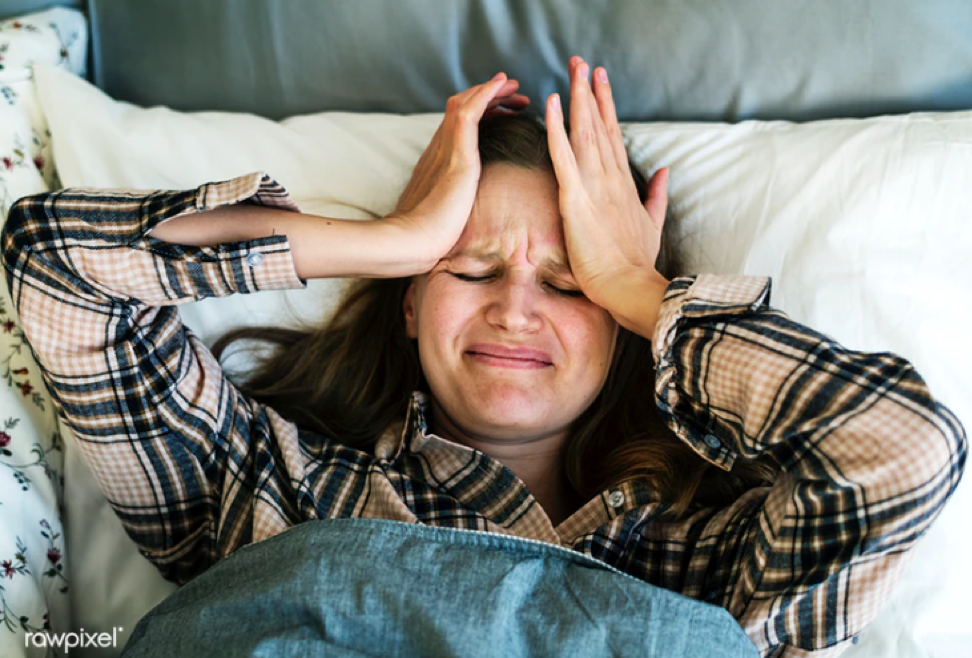
(Source)
When you talk about misophonia is it is a newly found disorder. The psychiatric guidebooks like DSM and ICD do not acknowledge it by now. They do not consider it as a hearing disorder, mental disorder, or any other kind of disorder. Even though misophonia marks all the boxes for being a disorder.
The researchers are still trying to collect information about the disorder. They are trying to draw a roadmap for the disorder. Up till now, the scientist could not decide if misophonia is a disorder itself, or it is a symptom of some other bigger mental disease.
Misophonia is a disorder in which you respond to specific visual and audio cues unreasonably. These reactions may vary. You might respond aggressively or mildly.
The trigger sounds are usually very soft since these are everyday sounds that everybody hears and you cannot run away these sounds. Even though the sound is soft, but it can be relatively loud.
When you look at the 80% of misophonic cases, you will see that the person usually gets triggered by sounds that come from the mouth. These sounds may be of chewing, gulping, eating, whistling, or whispering.
If you get triggered repetitive sounds, in that case, you might still be dealing with misophonia. Every day sounds like typing, tapping, marker writing sounds, or the clock ticking sounds can also be trigger sounds.
If repetitive actions also make you respond in awkward ways, in that case, you might be suffering from misophonia.
When it comes to misophonia, you might confuse its various disorders. Misophonia is a disorder, which can only be trigger by an external stimulus once the external stimulus goes away, you calm down instantly.
You might confuse misophonia with an anxiety disorder. The best way to differentiate the disorder is by understanding if the stimulus is external or internal. When you have an anxiety disorder, the stimulus must be coming from the inside. For example, a simple thought of giving an exam might keep you thinking and make you anxious.
Phonophobia is another disorder that you might confuse with misophonia. If you have phonophobia, they will get scared of loud noises like sirens, toilet flushes, or the sound of something dropping. This disorder is very common in autistic children.
Hyperacusis is another disorder that is common in autistic children. If you have this disorder, certain intensities of sound might cause physical pain in the ear and brain. The sounds can be of various intensities, volumes, or a certain characteristic of the sound might be a trigger.
As you know, misophonia is a newly found disorder, so the treatments for it are very few. Until now, healthcare providers use three different treatment methods for treating misophonia. These treatments help you deal with the disorder, but they do not cure the disorder in any way.
During this therapy, the healthcare provider will conduct some exercises on you, which will help you in tolerating the trigger sounds better.
It is closely related to tinnitus retraining therapy. While the therapy, the healthcare provider will try to alternate your negative response into a relatively positive response towards the stimulus.
Recently the healthcare providers have introduced a new treatment for Misophonia. The healthcare providers add sound to your everyday background that you do not react to the trigger sound as much as you usually do.
The newer treatment has the most successful results. It helps the person to recondition more effectively.
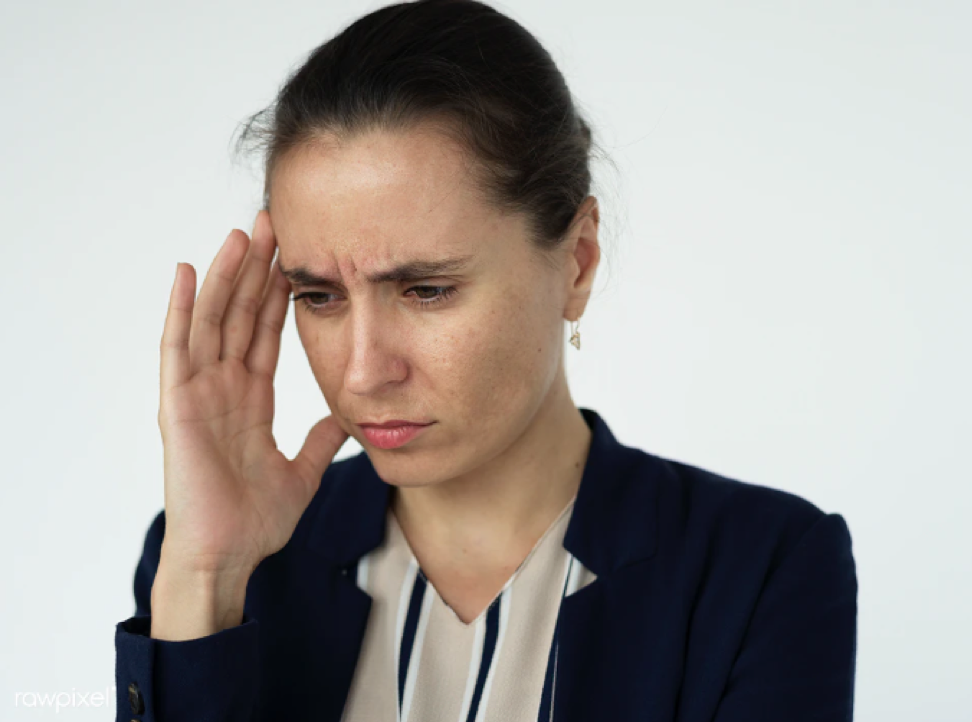
(Source)
Misophonia is a newfound disorder.it was acknowledged in 1997. So that, all its treatments also very new. In the past people used to treat misophonia with TRT and CBT, but the newer treatment is also coming across as effective. It has many successful results. But if your case is severe, the healthcare provider might also recommend medication.
Do you need information on Misophonia treatments? While there are many people who enjoy chewing, slurping, whispering, and tapping sounds, there are some individuals who do not enjoy these sounds at all. In fact such sounds feel like nails on a chalkboard to them. When you talk to a person with the disorder, they will tell you that the sounds drive them crazy and they need to move away from the sounds as soon as possible. Such people will even respond in an unreasonable way for a relatively simple inconvenience.
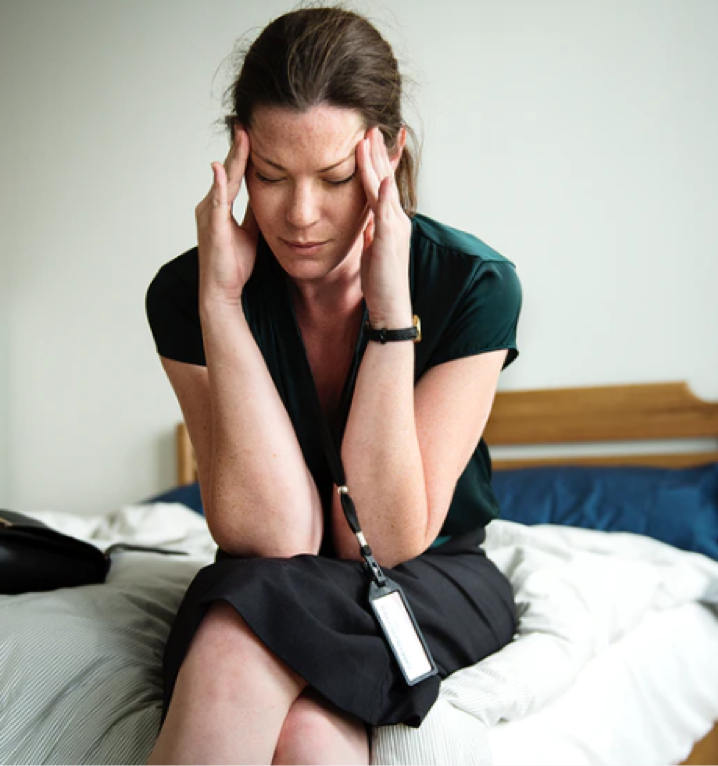
Various researches indicate that around 20% population of the world suffers from misophonia. It is becoming quite common these days. Misophonia has various forms and levels. In each form and level, you will have a different reaction to the sound and different types of sounds.
In one unnamed form of misophonia, you might get triggered by a repetitive visual stimulus. In this form, you will find it annoying when you see a repetitive action. These stimuli may include tapping of a shoe, headbanging, or finger tapping.
The other form of misophonia is hyperacusis. Negative reactions towards a particular sound characteristic. If you have this form of misophonia, you might react to various characteristics of sound like volumes, types of the sound, or various intensities of the sound.
Phonophobia is a severe form of misophonia, where you will become fearful of some sounds. You might develop the fear because of some traumatic incident from your childhood. If you have this type of phonophobia, you will find more likely to go in a panic mode when you hear the trigger sound.
In the most common form of misophonia, you will be unable to bear with the sounds that come from the mouth. 80% of the misophonia patients experience it. You might get triggered by sounds like slurping, eating, whistling, and chewing.
Misophonia differs from person to person. Some people have severe misophonia, and some have mild. According to that, their reactions also variate. Some give a highly aggressive response to the stimuli, whereas some people might only get annoyed by the sound and not react to it.
Misophonia is a relatively new discovery. The scientists are still finding reasons for misophonia but they haven’t found any single known cause for the disorder. Some researcher’s say that the disorder is because of some central nervous system has a problem.
Another reason for misophonia might be classical conditioning. The person develops a negative response towards an irritating noise. It is prevalent that they developed this response in their childhood and it has become their habit and they cannot help it anymore.
Like other disorders, if you have misophonia, then it might come along with various other disorders. You might not have the other disorders in the first place but since you have misophonia, other similar disorders and medical conditions might come with it.
Since misophonia triggers you to respond aggressively, you might also develop various heart diseases like high blood pressure and other related diseases.
Misophonia is an anxiety-related disorder. So, when you are suffering from it, you might also develop various mental disorders and hearing disorders. If you are a prepubescent female, you are more at risk of developing misophonia and mental diseases.
When you come to treatments for misophonia, then you must know that most of the misophonia treatments do not provide evidence for their effectiveness. Most health care providers will guide you through various strategies and treatment techniques and therapies if you have misophonia. They will suggest you go along with therapies like tinnitus retraining therapy, behavioral therapy and some will as recommend meditation.
Meditation is the safest and most effective way to calm your mind and body. Meditation is going to relax your mind and will help you get patient.
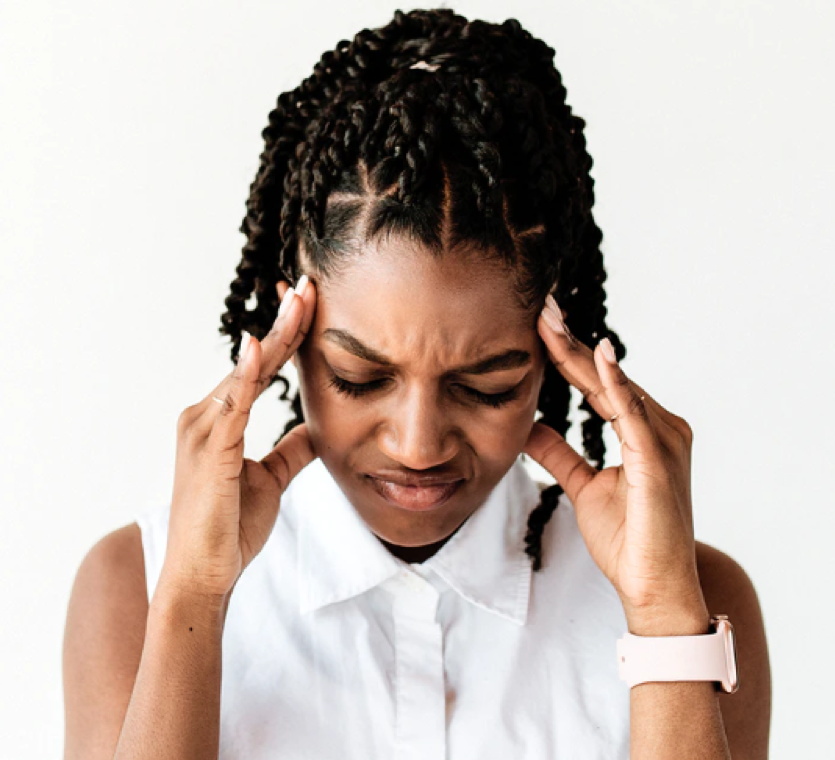
Misophonia is a very common disorder. You might have it from your birth but it is more likely that you develop the disorder by the age of 12. The disorder has various types and levels.
The best you can do to overcome misophonia is to ignore the sound that is triggering you. Another good way to treat misophonia is by meditation. It will help you in getting more patient.
Misophonia Cognitive Center
Stephen Geller Katz, LCSW-R
19 West 34th Street
Penthouse Floor
New York, NY 10001
Call today for FREE phone consultation
Misophonia Treatment: What are your options? If you have noticed symptoms of Misophonia in yourself and are confused as to what your next step should be, worry no more. There are several treatment options available that can help reduce your symptoms and give you relief. All you have to do is get in touch with our Misophonia specialists. We will educate you about this condition in detail and also guide you by sharing effective ways to deal with it properly.
There is no definite way of diagnosing Misophonia. Your therapist will talk to you about your symptoms and triggers. You may even be asked to fill questionnaires or appear for interviews for a better understanding of the severity of your condition.
It is important to note that there is no medication or drug that helps cure misophonia. However, in some severe cases, anti-anxiety medication can be prescribed to ease and cool down your anxiety symptoms. Options that mostly work best are therapeutic ones. Conversations that straighten out your scattered thoughts are extremely effective. The brain science behind the irritating feeling is the fact that your Central Nervous System is not able to process the sounds that also mess with the area that is responsible to process emotions. That explains the frustration caused by the noise. That is why clearing your head and talking things out with a good listener is the best option.
It is possible that your family or friends may not understand what you are trying to say so it is best to consult a Misophonia specialist. Cognitive Behavioral Therapy seems to have been very successful for many. It is a very goal oriented therapy that makes the sufferer reflect on their thoughts and helps fix distorted thinking. CBT sessions aim to teach techniques such as relaxation, mindfulness, resilience, stress and anger management. By the end of your CBT sessions you will be able to handle Misophonia and the aggression that comes with it in a better more focused manner.
In addition to that, there are ways to temporarily drown out the sounds. You can do that by wearing ear plugs or listening to soothing music. Listening to ‘brown’ sounds so that the background noise can eliminate or fade away is also a very good option. Other than that, music therapy and meditation helps soothe their minds from all the chaos that misophonia brings.
Tinnitus retaining Therapy is a special kind of therapy that deals with sound sensitivity and auditory problems. This therapy is mostly used to help patients who are sensitive to specifically ringing and buzzing sounds. But, it has also proven to be successful for sufferers of Misophonia as well.
After therapy you will hopefully be able to cope with the symptoms of Misophonia. You will sense the improvement because there will be increased tolerance towards the sounds you once found extremely irritating and unbearable. Your therapist will teach you ways to distract yourself and may even recommend you to join a support group where you will get to learn tips and tricks from fellow Misophoniacs.
Now that you know that all these treatment options exist, take help from a Misophonia specialist, who will guide you towards what would suit YOU best depending on your condition and make a tailor made plan to treat your Misophonia. Schedule an appointment with the best Misophonia Specialist In NYC today.
Stephen Katz LCSW
646-585-2251
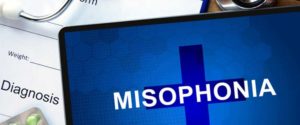 Misophonia is a unique disorder that has become common by now but is difficult to understand at the same. A sufferer of misophonia doesn’t affect by every sound, and this is a solid reason why it is widely misunderstood. Certain ambient noises trigger misophonia. Moreover, the disorder has not listed in the standard classification of mental disorder (DSM-5) that mental health experts follow in the United States.
Misophonia is a unique disorder that has become common by now but is difficult to understand at the same. A sufferer of misophonia doesn’t affect by every sound, and this is a solid reason why it is widely misunderstood. Certain ambient noises trigger misophonia. Moreover, the disorder has not listed in the standard classification of mental disorder (DSM-5) that mental health experts follow in the United States.
This is why its diagnosis and treatment are at initial level. In most cases, the disorder diagnosed in last levels and treatment doesn’t show effective results. It mainly happens when a person failed to understand that he has developed misophonia and his psychological health gets disturbed already.
Moreover, experts are still finding causes that contribute to the disorder and how it is associated with a person’s psychological health. There are techniques through which, it can be diagnosed. Health care providers such as primary-care providers, psychiatrists, psychologists, audiologists, physicians’ assistants, speech and language therapists, and psychiatric nurses can diagnose your misophonia effectively.
You can consult with any professional to get your misophonia diagnosis done. Since it is associated with your psychological health, the professional examines with extra care. It begins with a detailed medical interview. During this interview, your medical history and current health condition are discussed in detail. A sufferer is also expected to corporate and to provide correct information about his physical and mental health to get the effective treatment. Moreover, the professional may ask for a physical examination to get a better understanding of your overall health.
During the misophonia diagnosis, the professional might check for other disorders such as tinnitus, hyperacusis, auditory hallucinations, and age-related hearing loss. This practice is followed due to many reasons as they also contribute to psychological disorders. For misophonia, experts state that illnesses like these often result in chronic mental problems such as anxiety disorders, depression, obsessive-compulsive disorder, bipolar disorder, personality disorder, etc. Several studies also concluded that if not treat on time, psychological problems start affecting your health adversely. And certain sound triggering misophonia could be a result of some chronic mental problem.
Thus, the professional examiner will look for symptoms of manic depression, anxiety, depression, behavioral disturbances, etc. Experts are also determined that misophonia could be a side effect of certain medication. And to identify it, the examiner may prescribe a regular laboratory test as it will help assist the condition of a misophonia sufferer.
 Moreover, a professional might ask for X-ray scan, test reports, or medical prescription list to evaluate various possibilities associated with misophonia. Apart from this, you examiner may ask series of questions based on your family history, various incidents, psychological health, etc. that are necessary to diagnose misophonia.
Moreover, a professional might ask for X-ray scan, test reports, or medical prescription list to evaluate various possibilities associated with misophonia. Apart from this, you examiner may ask series of questions based on your family history, various incidents, psychological health, etc. that are necessary to diagnose misophonia.
Moreover, the professional examiner will carry out the procedure, ask for laboratory tests and prescribe medicines depending on your condition. In some cases, tests or psychological examination aren’t required whereas some patient needs immediate help.
Hatred of sound isn’t normal, and it should be examined. Hence, don’t wait and schedule an appointment right now to get reliable misophonia treatment. Talk to the best misophonia treatment specialist today!
 As misophonia is a condition still in its early infancy, research wise, there is not the same range of treatment options for it as there are for some more widely recognized health problems. Consequently, people living with misophonia tend to be offered treatments which are either therapy focused, or have a strong self-management element to them.
As misophonia is a condition still in its early infancy, research wise, there is not the same range of treatment options for it as there are for some more widely recognized health problems. Consequently, people living with misophonia tend to be offered treatments which are either therapy focused, or have a strong self-management element to them.
Tinnitus Retraining Therapy (TRT)
This approach calls on a mixture of sound therapy and education, including learning about the condition and how it works.
A specific talking therapy, this focuses on how you relate to the world and others, and how your actions are related to your feelings. The major emphasis is on coping with the current situation, rather than historical events.
Hypnosis can be extremely effective at encouraging relaxation and calm, and it has the added advantage of enabling the patient to tap into these coping mechanisms, once rooted in the subconscious, as and when they are needed in the future.
Self-Management Solutions
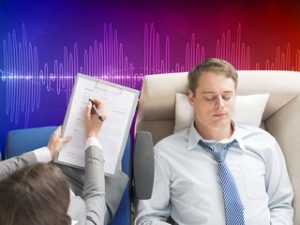 Recording thoughts, feelings, details of attacks, and the circumstances leading to triggers is a good way to provide a tangible history of the condition. Some people find it useful to look back and identify patterns for both good and bad days.
Recording thoughts, feelings, details of attacks, and the circumstances leading to triggers is a good way to provide a tangible history of the condition. Some people find it useful to look back and identify patterns for both good and bad days.
Part of living with misophonia is about taking control of the condition, and this may involve making choices about which events and gatherings you will attend, which can be managed by wearing headphones or avoiding notable trigger people, and which will be passed on, as avoiding over-exposure really helps you in the battle to take control of this condition.
Support Groups
These exist both on and offline, and there are definite advantages to joining one, or both types. It can be a huge relief to have the freedom to chat and share experiences of a condition with those who know exactly what you are talking about. Online support is especially useful as there are fewer time constraints, so it can be accessed pretty much 24/7.
 Although the possible treatment options seem a little piecemeal they can be quite effective if used in the right combinations. It is important that a bespoke approach is used, so the ideas selected are chosen to suit the individual attitude, needs and circumstances of each person seeking help.
Although the possible treatment options seem a little piecemeal they can be quite effective if used in the right combinations. It is important that a bespoke approach is used, so the ideas selected are chosen to suit the individual attitude, needs and circumstances of each person seeking help.
To learn more about treating this condition make an appointment now with the top misophonia specialist in NYC.